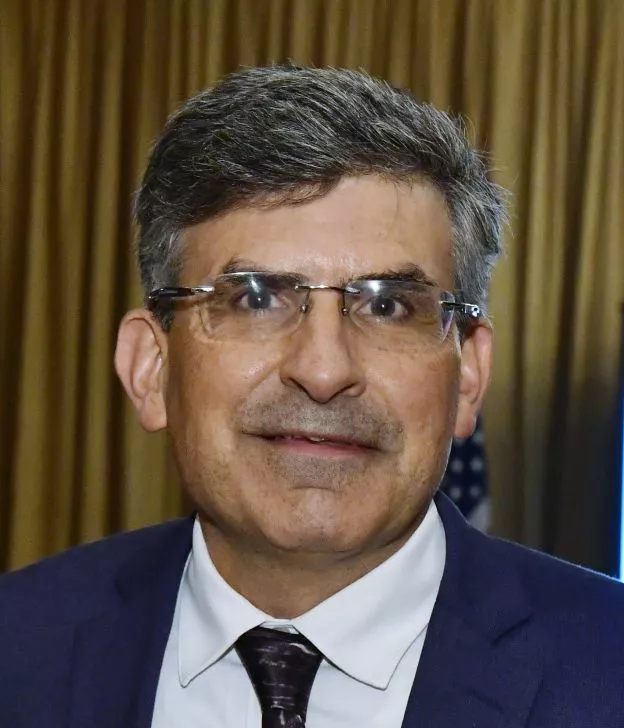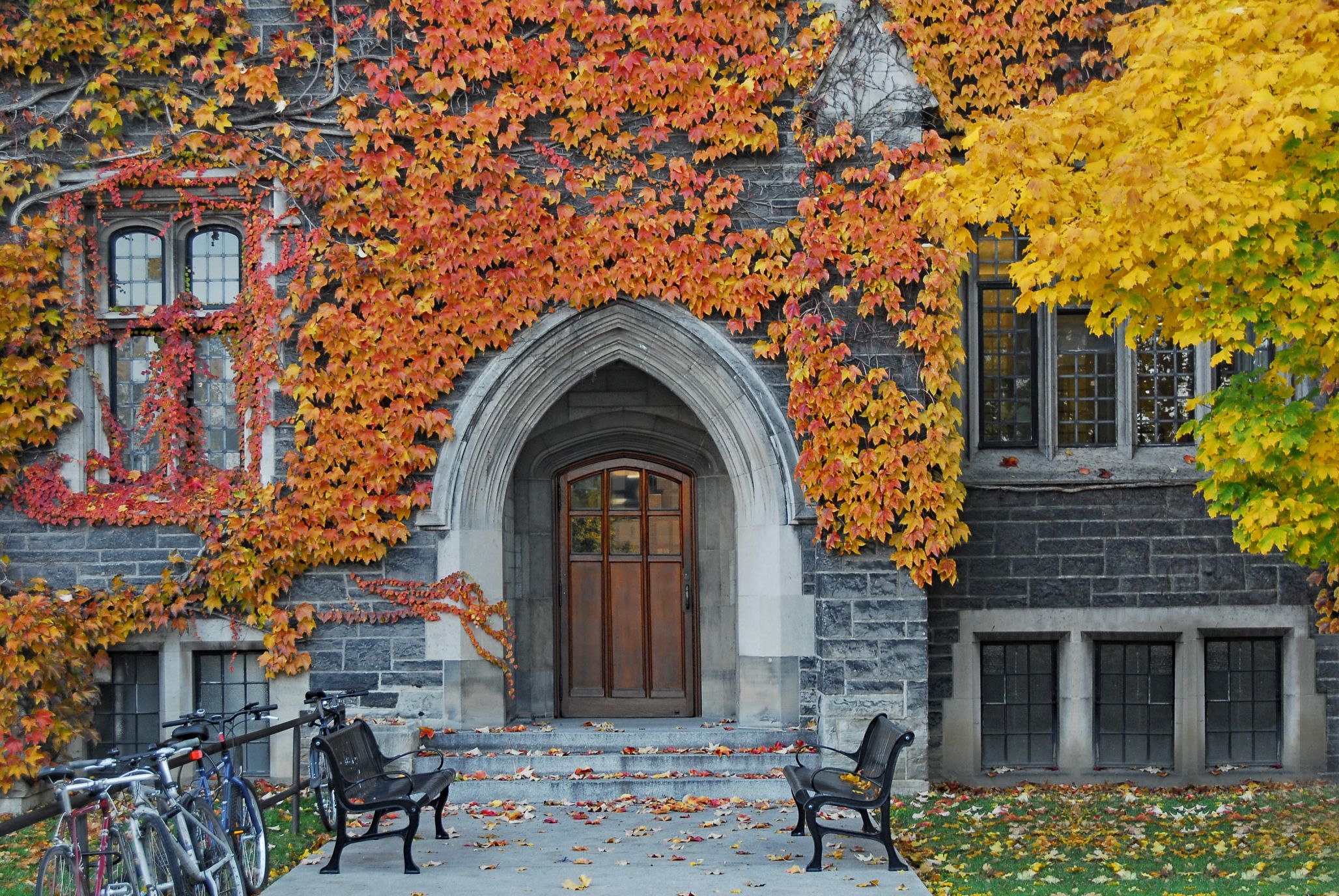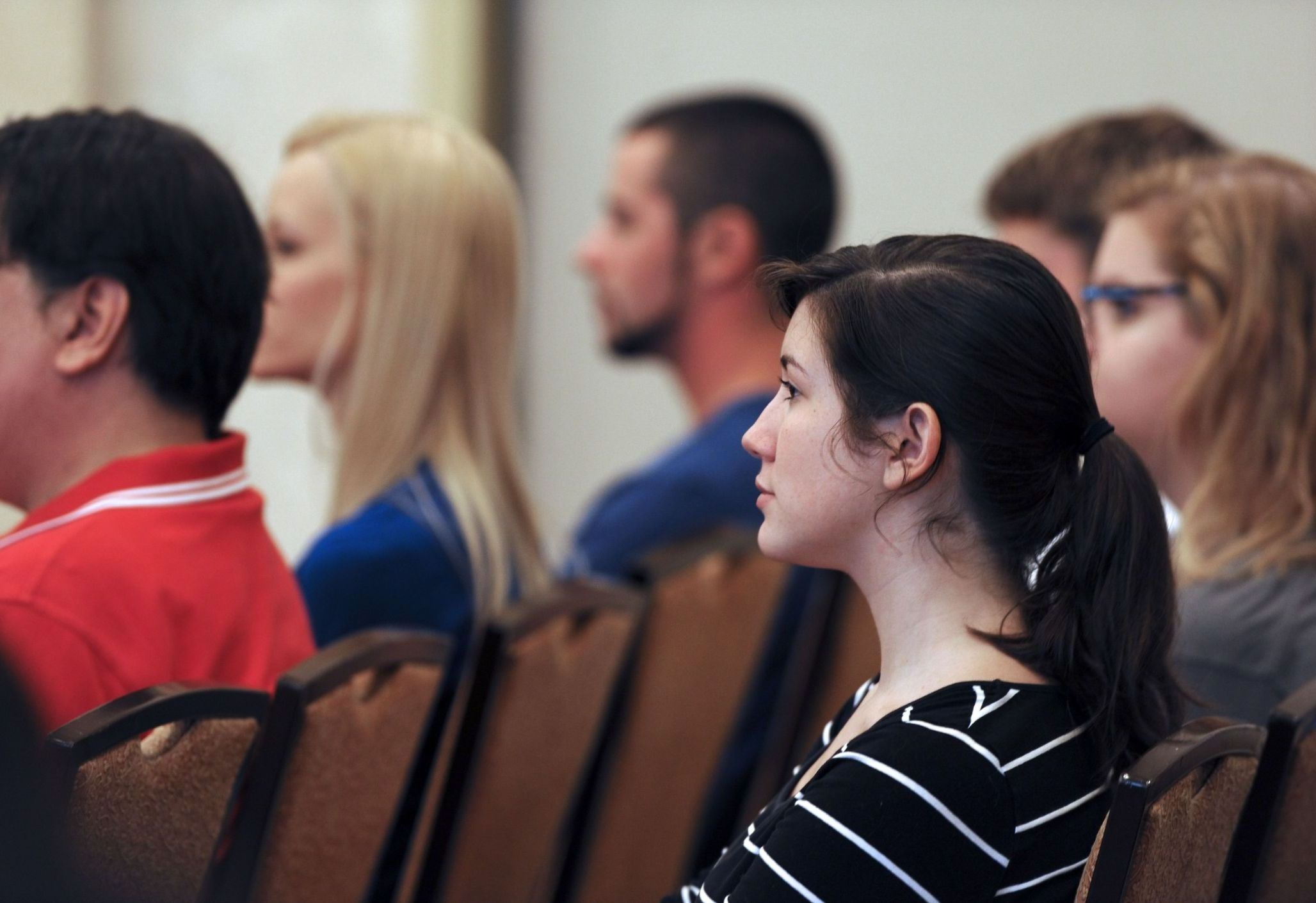
The Restoration of Higher Learning
We can restore genuine liberal education and the higher mission of our universities while resisting the pull of endemic ideological advocacy.
The pro-Palestinian campus protests at many universities during the spring of 2024 have deepened the crisis of legitimacy facing American higher education. New Gallup polling since the protests shows a 21 percent drop in the top tier of confidence in higher education since 2015; with a super-majority of Independents, let alone Republicans, registering only some or little-to-no trust that colleges and universities serve American society. The campus demonstrations of anti-academic violence, intimidation, and antisemitism subsided during the summer, but likely will resurge during the new academic year, partly due to the boost in attention provided by the mid-August Democratic National Convention in Chicago and also the opening provided by this fall’s contentious election. Yet the basic reason this episode of campus illiberalism will not fade is the deep culture of ideological orthodoxy and illiberal education predominant in the faculty and administration of most universities and colleges, inducing too many students to abandon higher learning for activism.
Harvard’s James Hankins has addressed in several Law & Liberty essays the woeful condition of elite higher education, and the need for sensible reforms to depoliticize campus cultures and discourse rather than impose reactionary counter-conformities. His May 2023 essay on general reforms, and March 2024 essay on Harvard, commend the efforts to establish new institutes of civic thought and leadership at public universities; and he notes his advisory role for one, the Hamilton Center for Classical and Civic Education at University of Florida. Analysis of the failings exposed by the protests, and their causes, affirms the need for structural reforms like the new field of civic thought and leadership. That reform was sparked by the department I was recruited to build at Arizona State University in 2016, and it now has spread to public universities in eight states. Moreover, some private universities are taking note of the deficit of civic education in American higher education and are undertaking reforms; although it remains to be seen whether any will be as robust as the civic thought and leadership reform. These new academic units, and the new academic field they embody, can restore genuine liberal education and the higher mission of our universities while resisting the pull of endemic ideological advocacy.
What the Protests Exposed
A silver lining of the pro-Palestinian protests is that students are hungry for a larger moral purpose and civic engagement. They are moved by the deaths of Gaza inhabitants and the humanitarian crisis caused by the conflict between Hamas and Israel. Yet the chanting, occupations, violence, and antisemitism are rightly perceived by many Americans as further proof of a crisis in our civic culture and in higher education, with the latter betraying its basic missions. In May, Robert Rubin—a former Treasury Secretary under Bill Clinton and former member of the Harvard Corporation—worried in The Atlantic that the already-declining public confidence in universities and colleges would drop further given this episode. Especially given that Rubin’s prediction has been confirmed, higher education leaders must seek the root causes of this latest crisis, and develop structural reforms to genuinely address deep deficits.
What does it reveal that, from elite private campuses to leading public universities, students and their faculty mentors, along with external agitators, have demanded unrealistic, maximalist responses to an immensely complicated conflict in the Middle East? They defied reasonable campus rules on free speech and safety. They occupied encampments and buildings, chanted angry slogans, and sparked a cycle of violence. This disruption of learning and commencement ceremonies—with strong evidence of antisemitic slogans, gestures, and physical intimidation—is seen as a triumph by the anti-Israel demonstrators. These faculty, staff, students, and their external supporters believe justice demands nothing less. Yet many other faculty, students, and alumni—and a broader American public—are disturbed to see campuses transformed from places of learning and discourse to left-progressive projects of social justice.

The fact that a significant set of students intransigently support Hamas’s brutal terrorism indicates that faculty, staff, university leaders, and trustees have not served them well. The issue is not the justice of the contending claims across Israelis and Palestinians about Gaza and the West Bank, but the protesters’ anti-academic spirit and deeds: repudiating discourse and reasonable argument about a tragically complicated conflict. These are the grounds for higher education leaders, as well as alumni and donors, to assess the curricula, programming, and mentorship by faculty and staff that produced what even a protest sympathizer such as Arash Azizi admits is indignation unguided by learning and sober judgment. University leaders and police departments have documented that outsiders stoked some extreme dimensions, but we still must ask how students—particularly on elite campuses—could be readily misled toward starkly anti-academic words and deeds by such figures, and by ideologically-driven faculty.
Restoring Higher Civics and Renewing the University
One constructive response in recent years to the already-worrying level of public distrust of American higher education has been the candid admission by educators from center-left to center-right of the failure to educate young Americans in the civic knowledge and civic virtues necessary for the challenges of self-government, informed civic participation, and reasonable disagreement across divergent views.
The protests only confirm this concern. Again, the student interest in larger moral purpose and civic participation cannot redeem the dark, illiberal core of the demonstrations. The basic truth is that too many students—and faculty and administrators—are too susceptible to extreme, anti-academic practices that undermine the reasonable discourse and civil disagreement that should define higher education, and which in turn prepares students to lead and contribute in a healthy American civic life.
Educators, trustees, alumni, and donors must connect this campus dysfunction to the larger problem of America’s angry polarization—itself caused in part by higher education’s abandonment of traditional civic education. This is not a partisan concern; many of the sources cited above, and to follow, are from center-left publications and writers. The protests should compel us to confront the costs to American civic life, and to higher education, of the failure to prioritize education in the duties, virtues, and perpetual challenges of informed citizenship in our democratic republic.
Princeton’s Keith Whittington helpfully noted during the protests that while chanting, drumming, encampments, and inflexible demands may be viewed initially as free speech, they may degenerate into the antithesis of the reasoned discourse and higher learning a university exists to provide. Further, violating campus rules and basic criminal laws is not free speech; it is, at best, akin to civil disobedience in defiance of authority. Yet if this becomes the norm, the university’s distinct mission to promote reasoned exchange of ideas cannot survive. Higher education leaders and supporters should consider that these distinctions about free speech, and the philosophy informing them, are crucial elements of the civic education universities and colleges must restore.
The Atlantic’s George Packer raised the deeper concern that this classical liberal model of the university may already be gone; arguing that the anti-Israel protests of 2024 are the final fruits of the 1968 protests. Those sparked a decades-long effort to transform the faculty and curricula of the social sciences and humanities into social justice programs against oppression in its various forms, including the hidden oppression of liberal democracy and American constitutionalism itself. Packer finds elite higher education “caught in a trap” of its own making: having increasingly educated faculty, staff, and students in oppression and transformation, yet now paralyzed by claims from Jews, and conservative students, that they in fact are the oppressed and harassed. Amid heated claims and counter-claims of oppression, Packer notes: “What the universities haven’t done is train their students to talk with one another.”
Those committed to saving American higher education have little choice but to explore deep reforms.
A further source of clarity, and hope for redress, arises from leaders pinpointing higher education’s failure in civics as a cause of America’s angry polarization, and the civic crisis of all national institutions and professions losing public legitimacy. Former Harvard president Derek Bok argued in 2020 that the widespread absence of serious civic education was the leading deficit facing higher education. In 2021, Johns Hopkins president Ronald Daniels and two co-authors argued in What Universities Owe Democracy for requiring education in informed citizenship; via coursework in civic knowledge and campus experiences of reasonable pluralism and civil disagreement. At Stanford, leaders of the Stanford Civics Initiative recently warned that “by abandoning civics, colleges helped create the culture wars.” The university now requires a course in citizenship for all students. Johns Hopkins, under Daniels’ leadership and the Agora Institute he established, is developing a democracy education requirement.
More broadly, the Institute for Citizens & Scholars recently launched College Presidents for Civic Preparedness, emphasizing that “the responsibility of higher education is to equip students with the critical civic skills to participate effectively in a democracy, engage in civil discourse, and express themselves responsibly.” In 2015, Heterodox Academy was established by university educators as a national-consensus effort to redress the ideological monoculture and orthodoxy in American higher education.

These and other voices grasp the need to restore civics as a core mission in private and public universities. Yet the current landscape makes such renewal a daunting challenge. As Columbia’s John McWhorter observed during the protests, our media and technology culture draws students towards performance and posturing, not deeper thinking and reasoned discourse. Further, “the single-mindedness of antiracist academic culture” dominating Columbia and other institutions tilts many students and faculty toward expressing moral concerns, and demands for justice, in modes descending toward dogmatism, abuse, and violence. Those committed to saving American higher education have little choice but to explore deep reforms.
Hankins warns in his most recent essay against reforms undermining the university’s mission of higher learning and high-minded discourse in the name of redressing political problems and societal needs. Restoration of a genuine liberal education to prepare civic-minded leaders, akin to the integrated education John Adams received at Harvard in the decades before 1776, would re-weave the missions of elite higher education precisely by restoring its commitment to truth-seeking and rigorous discourse.
Only Structural Reforms Can Rebuild Space for Higher Learning
Indeed, previous piecemeal attempts in higher education to restore foundational learning for American civic life have failed. The “Great Books” curricula of Columbia and a few other institutions, founded in the twentieth century to redress the loss of liberal arts learning under the research university paradigm, can become anti-civic and illiberal when shaped only by left-leaning faculty. Yes, as a Penn provost recently argued, “Higher Education Needs More Socrates and Plato.” Yet the depth and ballast of a liberal arts and civic education offered by studying Plato, Augustine, Locke, and Marx dissipate if the culminating point is conveyed to students largely as imbibing Frantz Fanon on imperatives to decolonize, Michel Foucault on seeing only power relations and their deconstruction, and the liberationist creed of the black-feminist-lesbian-socialist Combahee River Collective. What once was the “civic” side of higher learning has become either quantitative and soulless or utopian-revolutionary; we have lost the middle ground that integrates liberal discourse and truth-seeking with preparation for liberty and self-governing debate.
The landscape now is strongly stacked against students acquiring the civic knowledge and civic virtues for informed American citizenship. We must confront the reality that plausible roadmaps toward renewal need more specific yet still balanced plans. The path proposed by the Stanford Civics Initiative, and by President Daniels at Hopkins, offers hope. Required courses are needed in civic knowledge of the American constitutional republic, and its origins, including our debates for 250 years about its meaning and how to abide by its ideals. This should include a discussion of the view now actively or passively predominant on many campuses, that America is a sham and always was.

Required courses can also overcome the view that American civic knowledge isn’t a serious subject; that civics is jingoism masked as patriotism, or, only legitimate in K-12 schools. Such snobbishness has devastated the quality of and priority for civics in America’s schools, as documented in the Educating for American Democracynational-consensus study in 2021. (That study itself shows the possibility of liberal, Socratic discourse even in dark times; prominent center-left scholars Danielle Allen and Jane Kamensky of Harvard, and Peter Levine of Tufts, deliberately invited me as a co-author to ensure intellectually conservative views were at the table.) The effort to rebuild a higher civics in universities, with Socratic discourse to prepare students for the perpetual debate that partly defines America, is crucial for rebuilding the entire K-16 ecosystem of civics. This is what universities owe our republic—not least because America provides higher education with so much freedom, prosperity, and security.
As noted, the new colleges and departments of civic thought and leadership are restoring the civic mission explicit in the founding of most public universities, from the University of North Carolina in 1789 onwards. With mandates and funding from state governments, this renewal of a higher civics has been launched in eight states and thirteen public campuses—from Arizona to Ohio, Florida to Tennessee. Two are at public ivies, the School of Civic Leadership at UT Austin (a college) and School of Civic Life and Leadership at UNC Chapel Hill. While critics from these campuses, and in national media, have denounced this reform as a political ploy, the leaders of these campuses, and the diverse colleagues from Stanford, Hopkins, and other institutions with whom we are partnering to restore a higher civics, disagree. Indeed, a recent cover story of The Atlantic includes a positive portrait of my ASU department and the reform across public universities. Even the Chronicle of Higher Education recently has published three positive accounts of civic thought and leadership: an essay by AEI fellows deeply knowledgeable about this academic reform, another by an avowed centrist professor alarmed by the dearth of conservative professors—who endorses these institutes for a higher civics as repairing higher education without politicizing it further—and an essay by a conservative professor who commends these new academic units as redressing the ideological orthodoxy now largely dominant.
Prudence in Practice as Well as Theory: Beware Extremes
That said, some friends of this reform offer a qualified endorsement given potential pitfalls of establishing separate academic units or a new field of study. The centrist or “liberal institutionalist” just noted, Steve Teles of Johns Hopkins, admits there is no better alternative at hand to redress academia’s ideological narrowness than to establish units of civic thought and leadership. Yet he also worries “these new, conservative-friendly disciplines will produce academic ghettos rather than pathways into the mainstream.” Such tribalism would disserve the faculty and students in these civic education units, while failing to improve the illiberal character of most of academia.
Restoring a classical liberal education must embody Socratic debate and its modern liberal echo in the political-intellectual virtue of moderation.
Peter Berkowitz of the Hoover Institution has also warned of the greater disadvantage that could result from separate units and a separate field of civic thought and leadership, versus efforts to restore across the humanities and social sciences the full, complex approach of liberal arts education. For Berkowitz, liberal education must “cultivate citizens who understand the principles that undergird, and who can contribute to the maintenance of, free and democratic political institutions.” This cannot occur in the politicized, balkanized university that intellectual progressives and critical theory have fashioned across the past century; yet adding an avowedly conservative enclave on a campus is, in effect, more of the same. Mirroring the orthodoxy of a new field like women’s studies—or the ideological monoculture now entrenched in older disciplines such as sociology, anthropology, or English literature—helps nobody.
I’ve responded elsewhere to Berkowitz’s sober concern, and Teles’s more recent warning can be engaged in the same spirit. Berkowitz, to be clear, admits that separate departments, colleges, or super-centers of civic thought and leadership might be “the best means in the present circumstances for restoring a traditional liberal education.” He is also correct that students in these new courses and degree programs will not be liberally educated unless they “have learned to weigh the evidence, seek out and grasp the truth in contending opinions, and craft persuasive arguments.” These scholars thus join Hankins in cautioning this reform not to mimic the politicized, illiberal spirit dominant on many elite campuses. The challenge thus is to be distinct while remaining vigilant about the higher rationale for separate degrees and academic units, thereby avoiding the single-mindedness of a reactionary, culture-war approach. Those restoring a classical liberal education must embody Socratic debate and its modern liberal echo in the political-intellectual virtue of moderation—of avoiding extremes and single-mindedness in philosophy as well as in action—which Montesquieu identified as the core principle of his political philosophy. Tocqueville also recommended, and practiced, such moderation in his great study of America and modern democracy.

The founding mission statement for my ASU department, drafted by Harvard’s Harvey Mansfield, justifies a new department as providing “a new level of debate” over the enduring questions of human life and regarding the foundational ideals and leaders of America’s civic order. Mansfield’s admonition about “the conformity of opinion” besetting higher education in our era remained a touchstone during my years as founding director, prodding us to maintain intellectual diversity and robust discussion as hallmarks of our courses, our curricula and degrees, faculty hiring, and academic programs. There are few better places in the American university today to study prudence or practical wisdom, from Aristotle and Aquinas to The Federalist and Lincoln, than this new field of civic thought and leadership; but leaders of the field must also practice that virtue.
Justin Dyer, founding dean of the college of Civic Leadership at UT Austin, argues that the higher civics offered by these new units and this new field is intellectually conservative yet not ideological; rather it is “pre-partisan.” It provides the foundation for developing reasonable views on current policy debates by offering “knowledge of the character and basis of the political institutions we have inherited and must now steward as Americans.” Political science, history, philosophy, classics, economics, and other fields which once offered a blend of liberal education and American civics now largely have turned against such research and teaching, by shifting toward quantitative and narrowly utilitarian studies or toward critical and illiberal ideologies. Our best option is to establish civic thought and leadership as an interdisciplinary field, with its appropriate institutional autonomy; in departments and colleges with degrees, or “super-centers” that control some tenure lines and offer degrees. From this new basis, however, we must invite Socratic debate with these altered disciplines about the crucial issues of liberal education and citizenship preparation; for the mutual benefit of fields that might discover a need to re-liberalize and for ensuring our own field resists the pull of narrowness and ideology.
Civic thought and leadership has further grounds for remaining Socratic given the argumentative character of America’s civic order. An American civic education thus requires liberal education; conversely, as Dyer argues, civics is “a central part of a liberal education in its original sense: the education befitting a free person. It rests on open inquiry, reasoned debate, and freedom of thought and speech, all in the pursuit of truth.” Tocqueville noticed the argumentative character of American patriotism, and described the distinctive, new-world kind of public-spiritedness he observed as a “reflective patriotism.” Americans blend gratitude for our country and its principles with insistence upon argument and questioning, pointed toward both government and fellow citizens. We are a country grounded in ideals, and with a Constitution designed, as Yuval Levin recently has argued, to promote constructive disagreement on the premise that Americans always will disagree about what our ideals mean and how to live up to them.
An American liberal education thus must include space for a considered patriotism. Our ASU department aimed to graduate majors and minors who had acquired the intellectual and civic virtues needed for informed citizens and potential leaders in American civil society, the private sector, public affairs, or education. These virtues include civil disagreement; civic friendship across philosophical and partisan differences; and a reflective patriotism. This holds whether the students identify more with the right or left of our politics, or whichever party they find most hospitable.
A further question is how adequately a department of civic thought and leadership can offer students the broader liberal education that places politics in perspective, through consideration of poetry, the divine, beauty, and joy. The pursuit of happiness suggests an American esteem for politics as crucial, but incomplete; this in turn suggests a civic education preparing not zealots or activists but committed citizens who also appreciate commitments to family, religion, civil society, and other aims beyond and above politics.
James Hankins has eloquently, if soberly, called for higher education leaders to restore a Socratic spirit of classical liberal arts learning and discourse in our universities. We need wider discussion of his endorsement of a practical reform blending liberal education with an American civics that prepares citizens and leaders to sustain our constitutional democracy. Leadership preparation is a role that elite private institutions long have claimed. Harvard’s leaders, including trustees and prominent donors, can join a national-consensus effort to redress the higher education crisis by renewing the truth-seeking mission, with its commitment to civil disagreement. Other elite private institutions also should reaffirm for their own campuses, and the broader public, that the American university serves not just economic-technological development, or individual student fulfillment, but also our polity’s common good.
